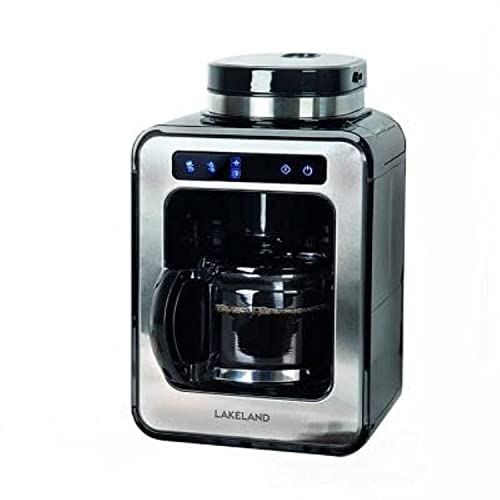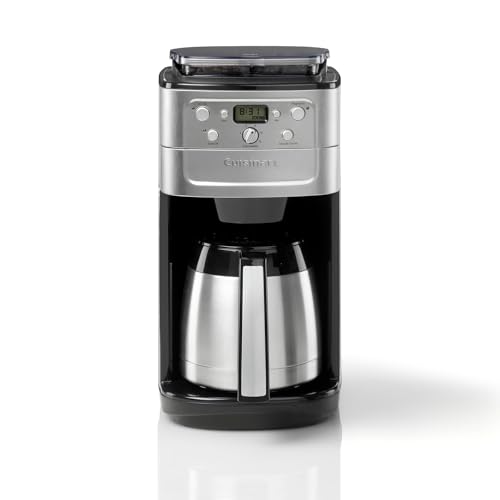Coffee Machine Coffee Beans: It's Not As Difficult As You Think
페이지 정보

본문
 Choosing the Right Coffee Beans For Your Coffee Machine
Choosing the Right Coffee Beans For Your Coffee MachineThe right coffee beans will have a significant impact on the flavor of your coffee. This is especially applicable to machines that employ bean to cup coffee machine for home-to cup technology.
 They have a hopper that you can fill with beans, and then they automatically grind them to the proper size for extraction. They also have a brewing chamber that holds hot water.
They have a hopper that you can fill with beans, and then they automatically grind them to the proper size for extraction. They also have a brewing chamber that holds hot water.Consistency
If you use the right coffee beans, bean-to-cup machines can make excellent coffee every time. To ensure that your coffee is delicious it is essential to select the right beans and roast. You also need to know the ideal grind size for your brewing method. The grind size is crucial because it determines the speed at which water will move and the amount of flavor is extracted. It is also essential to select a grinder of high-end quality, which will create a consistent grind that is suitable for the specific brewing method you are using.
For all brewing techniques, it is recommended to make use of medium-coarse beans since this grind size guarantees an even extraction and a balanced taste profile. It is important to avoid using dark roast beans in a bean-to cup machine, as these tend to be oily and cause a blockage in the burrs of your grinder. This can cause a buildup of coffee oils that will result in a bitter cup of coffee.
The quality of coffee beans can be harmed by a variety of factors, including storage and grinding. Beans that are stored too long lose their aromas and lose their moisture. This is why it is essential to purchase freshly roasted beans for your commercial coffee machine. It's also recommended to select medium to dark roasts, since they're better suited to beans-to-cup machines.
The best beans for your machine will be determined by your personal taste and preferences. Some prefer using solely Arabica beans while others prefer mixing. There are a variety of roast levels to choose from, ranging from light to dark. Some roasts are more suitable for certain brewing techniques, while others are suitable for any coffee maker.
The consistency of the grind may also impact the flavor of coffee. A finer grind will allow water to flow through it faster however it could also be more likely to extract too much flavor (a condition known as over-extraction). The shape of the particles in the coffee grind is a different factor to consider. If they are all of varying sizes and shapes they could affect the way the water flows through the coffee and cause certain areas of the grounds to be over- or under-extracted.
Cost-effectiveness
A coffee maker of your own could seem like a significant cost however in the end, it will be cheaper than buying expensive pods. Additionally, you'll have more choice in terms of beans and won't be limited to the choices offered by a rental company. You'll also save money on maintenance costs and won't need to worry about refills and service contracts, or ongoing contracts.
There are a variety of coffee machines on the market and which one is the best for your office is dependent on your preferences and your priorities. For example, a bean-to-cup machine will give you the freshest and most authentic taste, while a pod coffee bean machine machine offers simplicity of use and a wide range of flavors at a more affordable price.
Bean-to-cup machines are more expensive than pod machines, but can provide many advantages, such as reduced waste and better coffee. They can also be utilized with a variety of beans, making them a good option for offices who want to cater to the needs of a diverse workforce.
The type of beans you put in your coffee maker will determine the quality and taste of your cup of joe. It is recommended to select medium roast beans, which are roasted sufficiently to produce complex flavors, but not enough that they lose their natural flavours. It's also important to ensure that the beans have been freshly roasted. Old or stale beans could affect the final product.
Ground beans are cheaper than buying pre-ground coffee, but you'll have to buy grinders and invest in the right tools. But it's a worthwhile investment in the long run, since you'll have more control over the process of brewing and be able to alter the strength and size of the grind according to your preferences. Additionally you'll be free of the additives and toxins that are found in commercially produced ground coffees. Additionally, you'll be reducing the amount of waste you produce, as pods can be expensive and difficult to recycle because of their aluminum and plastic components.
Variety
There are a variety of coffee beans, each having distinct flavor profiles. These can be used in a variety recipes for drinks and food. Certain beans are roasted darker than others, which may alter the aroma and flavor of your coffee. Some coffees are roasted lighter and may have a more fruity or floral flavor.
It can be difficult to pick the right kind of bean for your machine. There are a variety of factors to consider, including origin, processing method and roast color. It is also crucial to select fresh bean coffee machine beans that have been roasted recently. Beans that have been roasted for too long may lose their aroma and flavor.
While there is no single kind of coffee bean that is better for bean-to-cup machines, certain beans are better than others. For instance, dark roasts, are best for espresso drinks, whereas lighter roasts are more suitable for filter coffee. As a rule of thumb you should play around with different flavors and varieties until you find one that suits your preferences.
Bean-to-cup machines are quick efficient, easy to use and versatile. They can be used to make cappuccino, coffee and latte as well in other milky caffeinated drinks. They are particularly popular with those who prefer a hands-free experience. With a bean-to cup machine, you don't need to fret about pressing a portafilter or tapping out the cake tray, or filling up a water tank. The machines are available at most major retailers and are perfect for use at home.
Water and coffee beans are the only two ingredients required to make coffee. For a delicious cup it is essential to use water that has been filtered and high-quality beans. The beans you choose will impact the aroma, flavor, and consistency of your coffee.
You should not only pay attention to the quality of the beans, but also the color and aroma of the roast. A light roast will have an ethereal flavor, whereas medium roasts have a balanced and full-bodied taste. Dark-roasted beans are ideal for espresso machine bean to cup, while light and medium roasts are best suited to filter coffee and bean-to-cup machines.
If you're looking to make an espresso or a cup of filter coffee, you can get your desired outcome using the coffee bean cup coffee machines grinder from De'Longhi. This bean-to-cup machine will grind whole coffee beans into fine powder and prepare it for brewing in under a minute. It can also produce a cup of cappuccino, latte, or chai tea.
Environment-friendly
Sustainable coffee is crucial since it's one of the most sought-after beverages in the world. When it is about coffee, sustainability encompasses environmental, social, as well as economic aspects. When buying coffee beans, be sure to look for Fair Trade or UTZ certificates to ensure that farmers are getting an equitable price for their harvest and aren't making use of harmful chemicals. These certifications protect the environment.
Despite its many benefits, coffee is still a resource-intensive crop. The process of processing, growing and packaging coffee beans creates greenhouse gases, deforestation, and water pollution. However the use of sustainable coffee beans and brewing techniques can reduce the negative effects. Recent life-cycle assessments (LCAs) examined the environmental impact of various brewing methods. Researchers discovered that the Moka pot, and single-serve capsules made of aluminum have the biggest environmental footprints. The former caused the most harm to nonrenewable resources and the latter generated large quantities of waste.
According to scientists who conducted the LCA production and cultivation are the two biggest contributors to the environmental footprint of a cup of coffee. Coffee production requires a lot of energy and involves fertilisers, pesticides and machinery that emit greenhouse gases. In addition it is a major source of deforestation within the Amazon basin.
In fact, a study from 2021 discovered that coffee produced using the least sustainable methods produced as much carbon dioxide as the equivalent amount of cheese, and was half as much as the emissions of beef. This was due to the intensive fertilization and irrigation as well as the use of nitrous oxide-emitting pesticides. But the best bean to cup coffee machines (https://telegra.ph/) positive side is that if we were to make the switch to sustainable practices, the negative impact will be greatly reduced.
There are a variety of ways to make your coffee more sustainable such as using reusable cups and mugs, using a powerful coffee maker, and purchasing Fair Trade or UTZ certified beans. If you're planning to use coffee pods, make sure you choose ones that are compostable 100. You can also purchase loose coffee grounds and use them to improve the soil in your garden.
- 이전글The 3 Biggest Disasters In Coffee Machine Beans History 25.01.08
- 다음글Discover What 4 Months Ago From Today Is 25.01.08
댓글목록
등록된 댓글이 없습니다.

